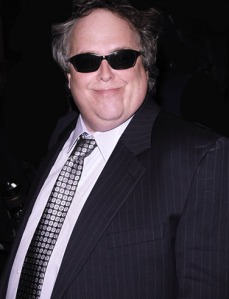From New York to Los Angeles, in Chicago, Seattle, Dallas, and D.C. at big stations and small there is an alarming story unfolding in talk radio. Talk stations are tumbling in the ratings and no one knows why, though there are many theories.
It’s political fatigue.
It’s too repetitive.
It’s too depressing.
It’s too angry.
It’s too boring.
It’s humorless.
It’s predictable.
It’s not entertaining.
It’s all commercials.
The list of once great stations that have dropped out of the top ten reads like a radio station all-star line-up: KFI, WABC, WLS, WMAL, KABC, KIRO, WBAP. And it’s not a fluke (pardon the pun.) This is real. Arbitron is noticing it too.
“…for the first time since we began keeping our format records, it (news-talk) recorded two consecutive books below a 9 share, finishing at an 8.7 in July. Now summer is historically the lowest time of the year for News/Talk listening, and we will be keeping a close eye on the results as August and September approach, but it’s worth noting that the format’s summer shares have declined about 10% since 2011.”
– Tony Hereau, Arbitron Media Insights Manager
Down 10% in two years as a format in the 48 PPM markets?!
Editor’s note: I’m sure radio ownership groups understand and have lowered revenue projections accordingly.
THEY DON’T LIKE US, LEYKIS. WHAT THE HECK IS GOING ON?
Tom Leykis, former radio show host now internet trailblazer at NewNormalNetwork.com, believes he was in the epicenter of the downfall of talk radio.
“It was in 1994.”
Leykis was a guest on Episode 13 of the Radio Stuff podcast (listen). He recalled broadcasting from the NAB the year his show was launching into syndication and everyone kept talking about a panel featuring talk radio consultant Ed Shane. As Leykis recalls, this was Shane’s message:
“It’s important, for your talk radio station to be successful, that everyone have the same opinion as Rush.”
Leykis takes it a step further.
“So in other words, the secret to Rush Limbaugh’s success was not his years of experience or his time as a DJ or the fact that he had great timing or was a good comedian, that he made good use of sound, but no, no, no – the reason for his success was that he was a political conservative.”
From there after, every station Leykis approached to syndicate his show would ask what his politics were. It wasn’t always like that, “Previously, they only cared, ‘do I get ratings? Will I help the station make money? Will I make noise?’ Suddenly I was being asked, ‘Are you a conservative?’”
Leykis believes that was the moment talk radio went from being a mass appeal format to being a niche format. And the problems with talk radio today stem directly from a consultant misreading the tea leaves.
“Talk radio went from Rush Limbaugh’s bells, whistles, jingles and parody songs and everything to a line up of people reading bill numbers.” He went on, “It’s devoid of humor, entertainment value or mirth. These are not radio personalities.”
He wonders aloud if anyone in the radio business getting the message?
And he cautions up and coming talkers, “Don’t go to a radio station, because you’ll never be allowed to develop your talent. Develop a podcast, develop a streaming live show, develop your own product, and learn how to sell it and become an entrepreneur.”
OKAY, SO NOW WHAT?
Maybe it is political talk’s fault. I happen to believe it’s likely a perfect storm of new media, new listener expectations, new social and political attitudes, and a general fear in radio of taking risks and being wrong – in every department.
Here are a couple of steps I believe are necessary for talk radio to attract new listeners and remain relevant.
1. DEMAND SHOWMANSHIP
Talk radio needs more storytellers and fewer alarmists. Talent need to entertain, emote and put on a show, as much as they provide insight, deliver information and add context. Radio station leaders must support talent and encourage them to be amusing, insightful, emotional, apolitical, curious, experimental, and positive while giving them permission to fail. And fail hard sometimes — without fear of being fired.
2. FIND ANOTHER REVENUE STREAM
Radio stations need to stop abusing the listeners. The quality and quantity of radio’s commercials is appalling. I mean holy smokes gang have you tried to listen to an hour of radio recently? Effective immediately commercials that don’t meet your standards or match your brand should be rejected. Be the first guy in the room to say, “Hold up! That spot sucks. It’s not going on our air.” Be bold.
And – this will be even less popular – reduce spot loads. It’s time. Thanks to DVR, podcasts, Netflix, on-demand audio, and satellite radio spot loads seem to be worse than ever. Until recently people were accustomed to sitting through commercials or flipping back and forth between stations, because it was the penance you had to pay to watch your favorite TV show or listen to a kooky talk show host. Now radio is the last place on earth (with the exception of movie theaters) where consumers are forced to sit there while commercials are crammed down their throat.
No fast forward.
No more patience.
No more listening.
Just look at the growth of online radio, on-demand audio and NPR. So what’s that mean? Radio needs to figure out a dual revenue stream. The future of financing big radio is commercials and__________. You fill in the blank.
Editor’s note: If you say commercials and banner ads, I will scream.
BOLD PREDICTION
Talk radio isn’t going to die, but it is definitely going through a mid-life crisis. The next 18-months the entire format will be redefined, programmers will be less focused on gaming PPM and more focused on listeners, commercials will sadly still suck, and Rush Limbaugh will be replaced by someone else as the face of the format.

Leave a comment